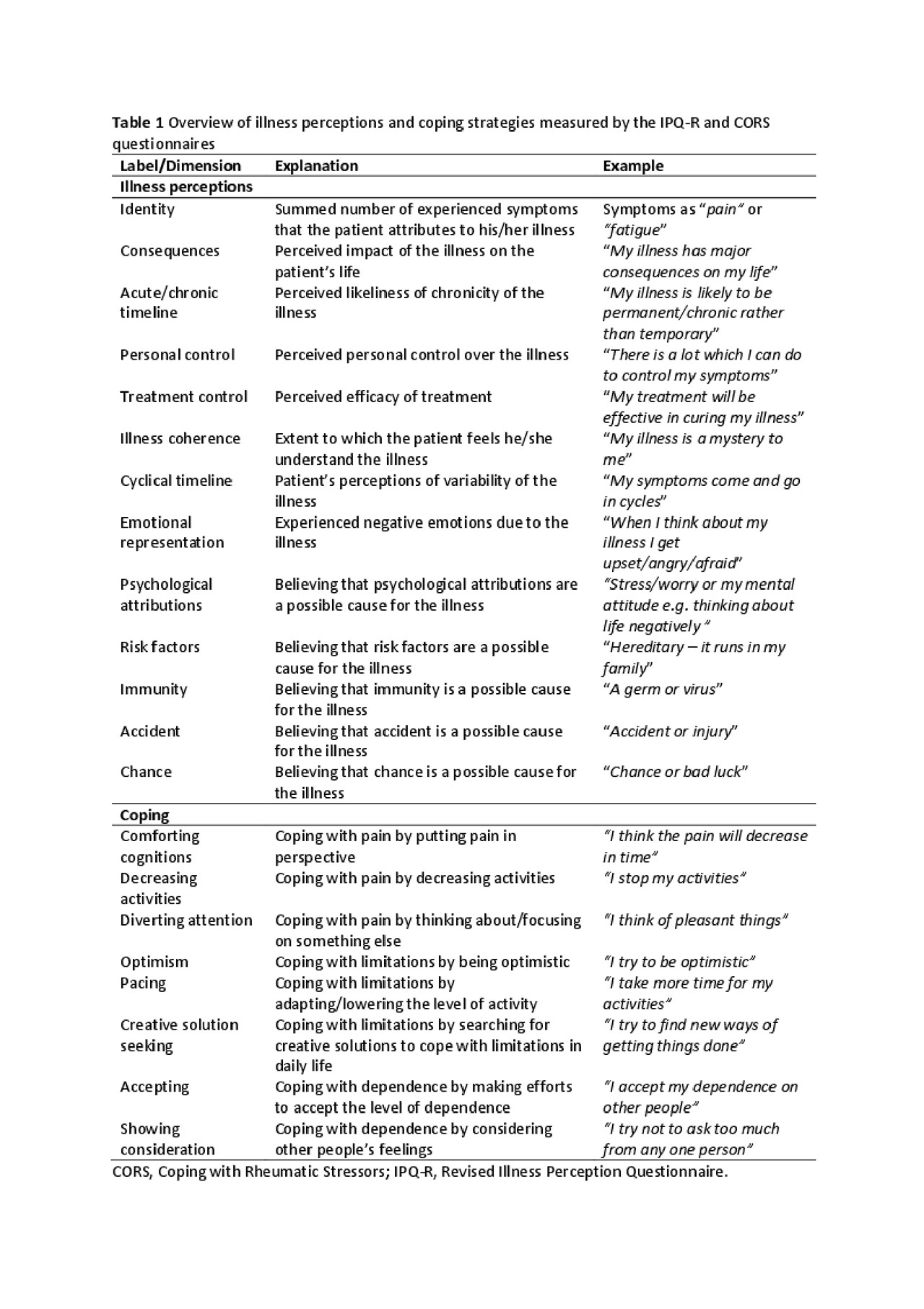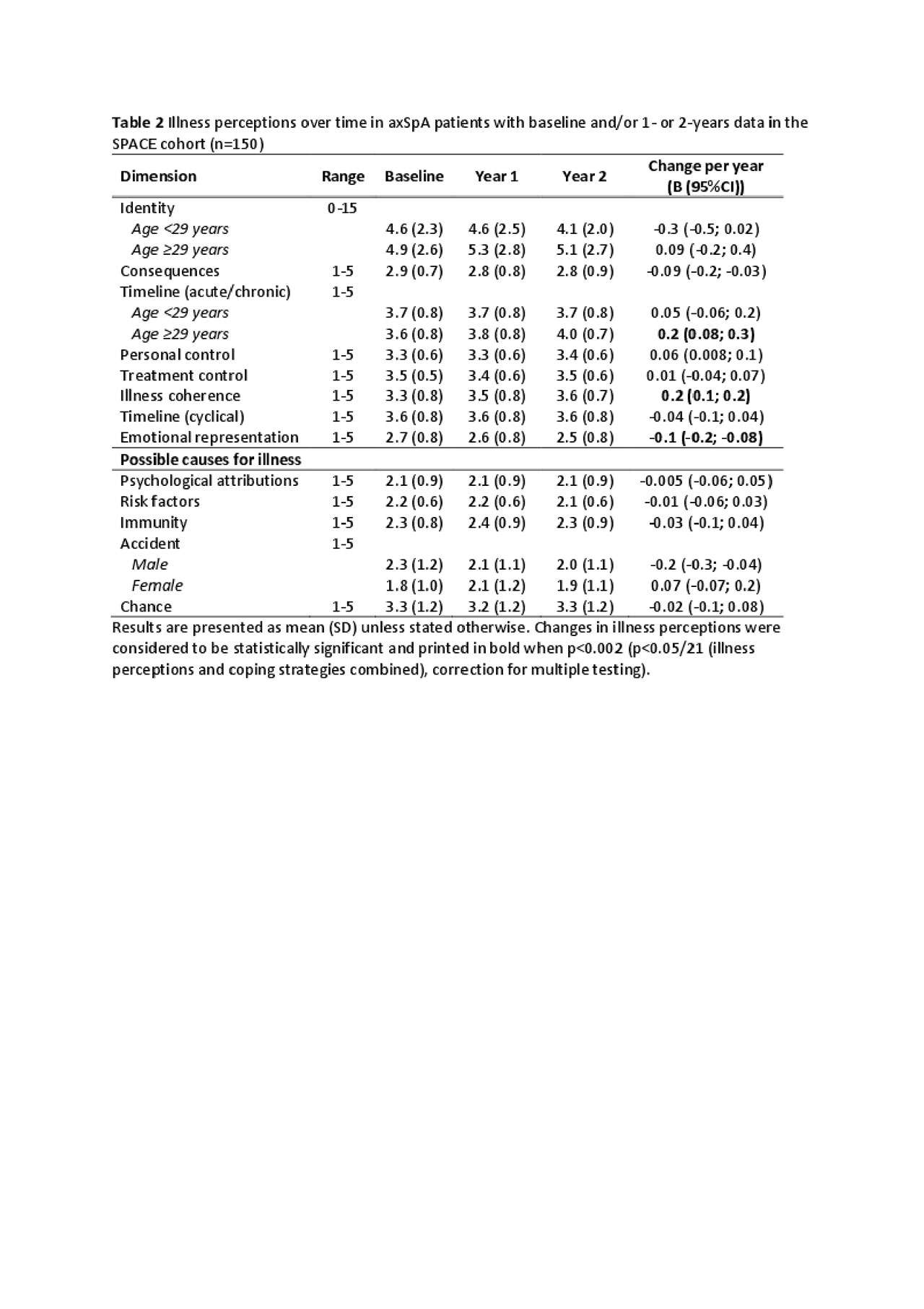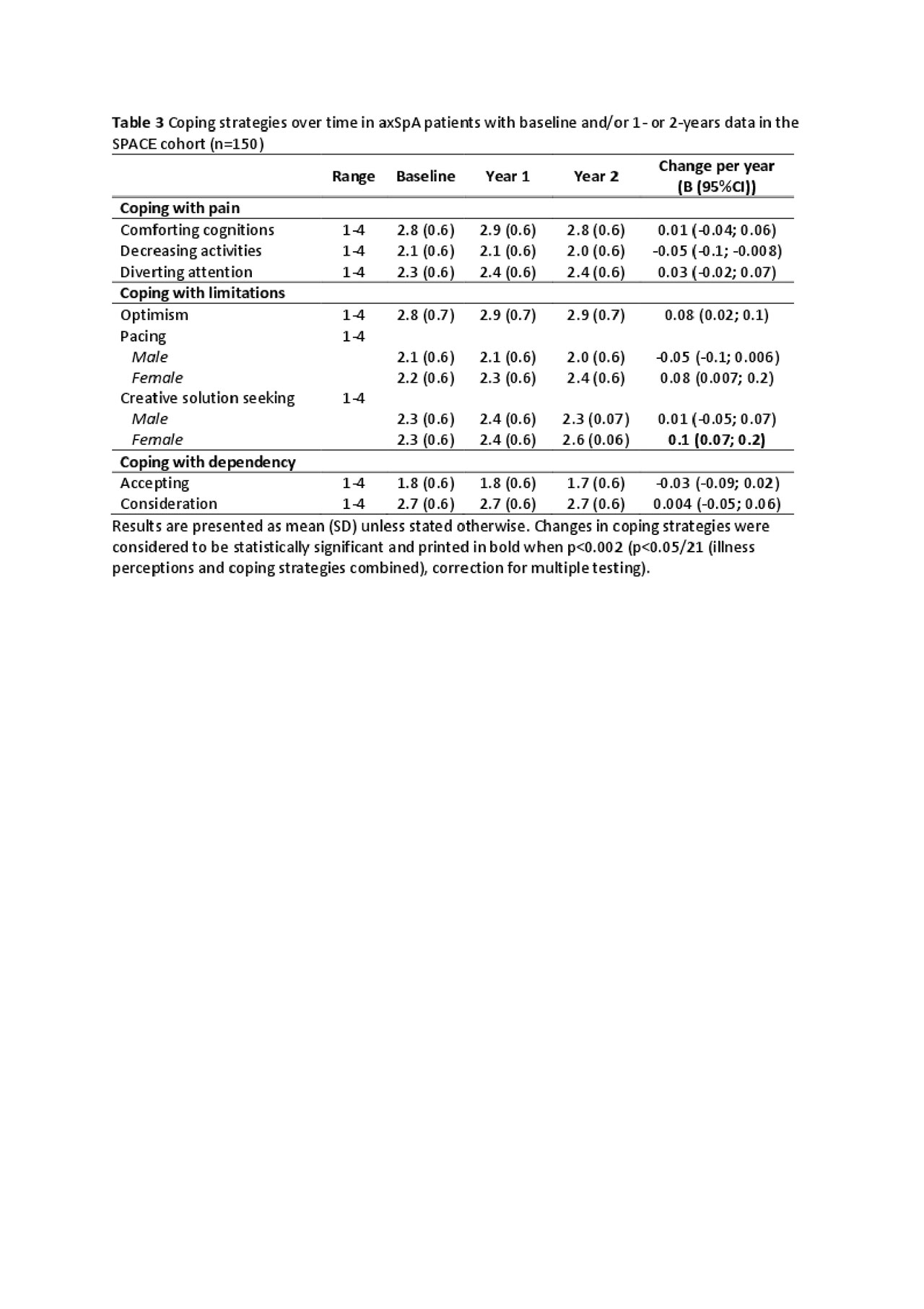Session Information
Session Type: Poster Session (Sunday)
Session Time: 9:00AM-11:00AM
Background/Purpose: We have previously shown that in patients with recently diagnosed axial SpA (axSpA), illness perceptions had a negative impact on the relationship between back pain and Health-Related Quality of Life (HRQoL) and work productivity loss (WPL). We investigated if illness perceptions and coping strategies change after axSpA diagnosis.
Methods: Patients recently diagnosed with axSpA and ≥1 follow-up visit (1 year and/or 2 years) in the SPACE-cohort were included in the analysis. Mixed linear models were used to test if illness perceptions (measured by the Revised Illness Perception Questionnaire (IPQ-R), Table 1) and coping (Coping with Rheumatic Stressors (CORS), Table 1) as well as back pain (scale 0-10), HRQoL (physical (PCS) and mental component summary (MCS), scale 0-100, 36-item Short-Form Health Survey (SF-36)), WPL and activity impairment (Work Productivity and Activity Impairment (WPAI, range 0-100%)), changed over time. Results were stratified for gender and age when the interaction term was statistically significant (p< 0.10).
Results: In total, 150 axSpA patients (mean age 30.4 years, 51% female, 65% HLA-B27+) were analysed. At baseline mean back pain (SD) was 4.0 (2.5), PCS was 28.8 (14.0), MCS was 46.6 (13.6), WPL was 34.1% (29.8) and activity impairment was 38.7% (27.9). Over two years, the percentage patients with ASDAS inactive or low disease activity increased from 39% to 68%, back pain (mean change ± SD is -1.5 ± 2.2) and activity impairment (-14.4% ± 27.2) decreased, PCS (11.1 ± 13.3) and WPL (-15.3% ± 28.7) improved statistically significantly (all p< 0.05), but MCS did not change (0.7 ± 13.9, p=0.201).
Illness perceptions and coping strategies showed little and no clinically meaningful change over time (Table 2, 3). Over two years patients remained having negative illness perceptions (which were important in the association between back pain and health outcomes in the previous study). For example, at two years patients strongly believed that their illness had severe consequences (‘consequences’), they had negative emotions such as feeling upset or having fear towards their illness (‘emotional representation’), and had strong beliefs in chance or bad luck (‘chance’) being the cause for axSpA.
Patients most often coped with pain by putting pain in perspective (‘comforting cognitions’), most often coped with limitations by trying to be optimistic (‘optimism’), and most often coped with dependence of other people by considering feelings of these people (‘consideration’).
Conclusion: Whilst back pain, disease activity, and health outcomes clearly improved over 2 years, illness perceptions about their illness and coping strategies to live with their illness remained remarkably stable in patients recently diagnosed with axSpA.

Table 1 Overview of illness perceptions and coping strategies measured by the IPQ-R and CORS questionnaires

Table 2 Illness perceptions over time in axSpA patients with baseline and or 1- or 2-years data in the SPACE cohort

Table 3 Coping over time in axSpA patients with baseline and or 1- or 2-years data in the SPACE cohort
To cite this abstract in AMA style:
van Lunteren M, Landewé R, Fongen C, Ramonda R, van der Heijde D, van Gaalen F. Do Illness Perceptions and Coping Change over Time in Patients Recently Diagnosed with Axial Spondyloarthritis? A 2-Year Follow-Up Study in the SPACE Cohort [abstract]. Arthritis Rheumatol. 2019; 71 (suppl 10). https://acrabstracts.org/abstract/do-illness-perceptions-and-coping-change-over-time-in-patients-recently-diagnosed-with-axial-spondyloarthritis-a-2-year-follow-up-study-in-the-space-cohort/. Accessed .« Back to 2019 ACR/ARP Annual Meeting
ACR Meeting Abstracts - https://acrabstracts.org/abstract/do-illness-perceptions-and-coping-change-over-time-in-patients-recently-diagnosed-with-axial-spondyloarthritis-a-2-year-follow-up-study-in-the-space-cohort/
